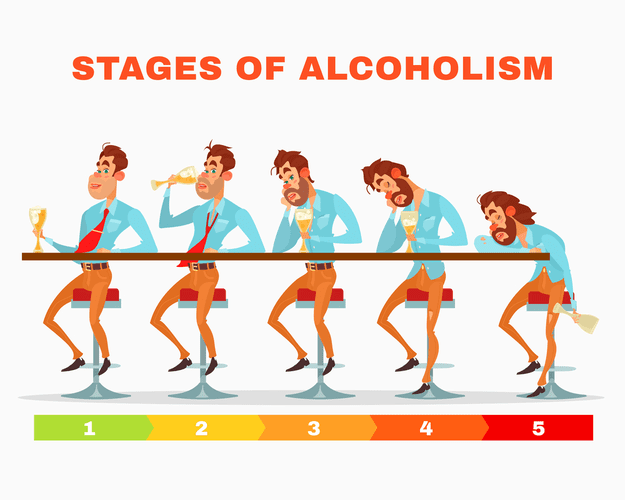Amanda is also passionate about mentoring new phlebotomists and helping them build confidence in their skills. Rachael grew up in the northern Thai city of marijuana addiction Chiang Mai until she was seven when her parents moved to the US. Her father was in the Oil Industry while her mother ran a successful restaurant. Now living in her father’s birthplace Texas, she loves to develop authentic, delicious recipes from her culture but mix them with other culinary influences.
However, alcohol can increase the likelihood and severity of bruising in all skin types. While simple bruises can be managed at home, worsening pain, size or additional symptoms warrant urgent medical evaluation to rule out significant bleeding or injury requiring treatment. In these situations, it is generally recommended to avoid alcohol altogether given the compounding effects on bleeding risks. Consuming enough water is one efficient way to promote optimal hydration. Consider drinking a glass or two of water before indulging in your favorite alcoholic beverage.
Q6: Are there any supplements that can help prevent bruising?
Excessive alcohol consumption can increase bleeding and bruising due to its vasodilatory effects. It also impairs the production of platelets and weakens the immune system, compromising the healing process. As alcohol dries the skin, our natural defence against pathogens, this can also lead to repeated skin infections. End-stage alcohol and bruising alcoholics are also at a high risk of dying from accidents, trauma and suicide. It’s common at this point for alcoholics to have lost their jobs as well their friends and family.
Binge Drinking (Alcohol), Bruising Or Discoloration, Dizziness And Dry Skin
- It’s important to understand the consequences of binge drinking, which include an increased chance of alcohol bruising on arms and legs and other major and minor health issues.
- Generally, minor bruises heal within 1-2 weeks, while more severe bruises may take several weeks to fully heal.
- When you’re dehydrated less water is available to moisturize your skin, leading to skin that is rough, flaky, itchy and is more prone to sensitivity.
- Yes, certain medications can interact with alcohol to increase the risk of bruising.
Bruising comes into play when you bump a part of your body on a hard surface, causing blood vessels to rupture. While you’re drinking, the blood flow around the surface of your skin will increase; even minor bumps can cause blood vessels to burst, forming a bruise. Dec 21, 2020Dizziness can result from alcohol intoxication, and intoxication can also lead to injuries that cause bruises. Dry skin may be present at the same time but is unlikely to be related to binge drinking. If you are concerned about your drinking or any symptoms, seek prompt advice from a healthcare provider. This process increases the likelihood a person will develop heartburn problems from alcohol abuse.
- Some injectors may recommend waiting longer, especially if you are prone to bruising or swelling.
- If alcohol begins to interfere with daily functioning, but you have been unsuccessful with giving up drinking, seeking treatment can help you to stay committed to recovery.
- Contact us today to learn more about how we can help guide you on the path to recovery.
- To allow the liver to heal and the risk of bruising to drop, you must stop drinking altogether.
Blood-thinning medications, such as aspirin or warfarin, when combined with alcohol, can further thin the blood and increase susceptibility to bruising. Tests can find abnormal blood cells or too few of the platelets that normally help your blood clot. You may need to have other tests if your doctor suspects that liver disease, cancer, or another condition caused your bruises.

Other Factors Contributing to Bruising
Additionally, heavy drinkers usually get most of their calories from alcohol. For most individuals, moderate alcohol consumption https://levelklinika.hu/10-best-art-therapy-exercises-for-addiction-6/ does not significantly increase the risk of bruising. Alcohol is a commonly consumed beverage worldwide, and its effects on the body have been extensively studied.

Treatment
So when alcohol and bruising you drink alcohol and injure yourself, you can be left with a bigger, more noticeable bruise than you might see while sober. That vital organ, which sits on the right side of your body beneath your rib cage, processes all of the blood in your body and cleans it of toxins before releasing it into circulation. Learning how to spot an “alcoholic face” is more than recognizing surface-level changes. It’s about being aware of underlying health issues from excessive drinking that manifest through physical signs.
You Can Protect Your Liver
The signs of an addiction to alcohol can vary from person to person, which is why it’s important to know as many signs as possible. Dark under-eye circles are among the most common and relatable alcohol related skin issues. Alcohol interrupts your normal sleep cycle and strips you of a full night of nourishing sleep. In addition, alcohol can cause blood vessels to dilate under the eyes making dark circles more inset and pronounced. Sleep deprivation begins at 5 hours, so be sure to get at least 6 to 8 hours of sleep and put a cold compress on the eyes. Steroids like prednisone can also cause easy bruising, because they thin the skin.
Other physical signs of alcoholism
Alcohol can have a damaging effect on many aspects of our lives, even if we only consume it in small amounts. For people who develop an addiction, the effects of alcohol on the body and mind can be significant. Individuals with thin or sensitive skin may be more prone to bruising, regardless of alcohol consumption.
Travel to destinations with a greater time difference requires more planning. Patients are advised to alter the timing of their doses gradually (eg, two hours earlier or later each day), either in the run up to their holiday. Patients travelling to different time zones may ask about the timing of their dose. Alcohol can inflame the gut lining and cause inflammation that leads to symptoms such as diarrhea or cramping. Plus, we’re always introducing new features to optimize your in-app experience.
Blood vessel abnormalities
An alcohol use disorder is a legitimate medical condition that causes lasting changes in the brain. Once a person develops an alcohol use disorder, they will continue to drink, even in the face of serious consequences, such as health problems caused by alcohol. Brain changes from repeated alcohol misuse lead to compulsive drinking and make it difficult to stop without treatment. Among these health issues caused by frequent heavy drinking are the occurrences of bruising after drinking alcohol. If such cases befall you, step back for a moment to weigh on the more significant health issue it has brought upon your health condition.

